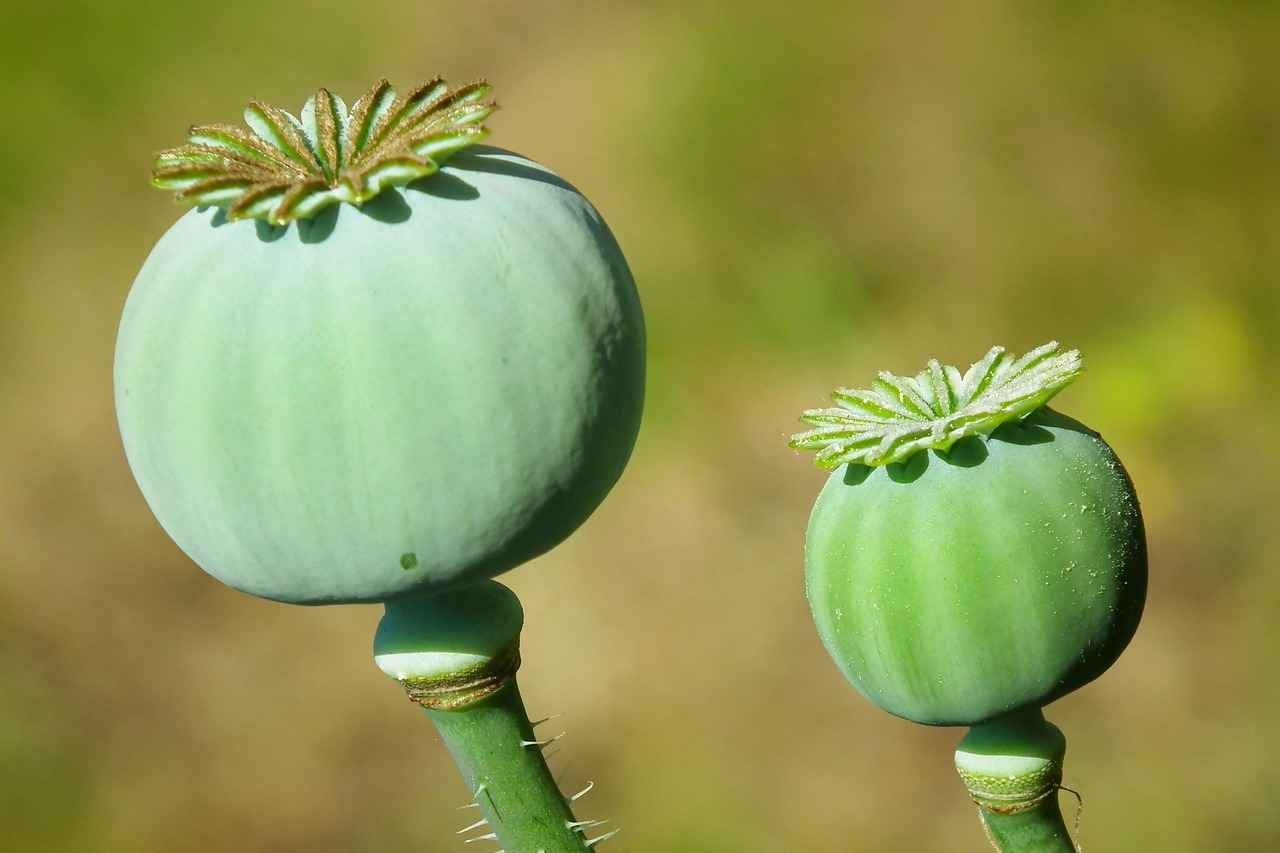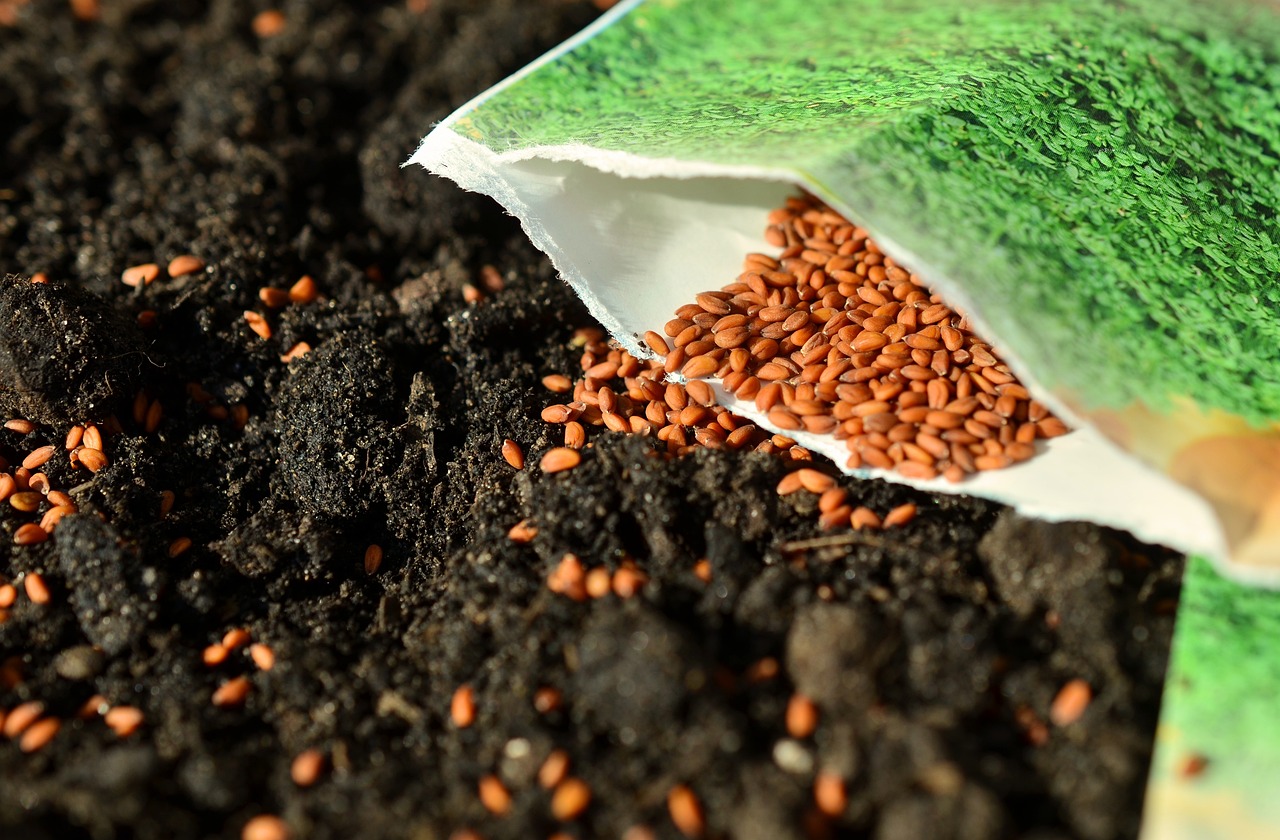This article delves into the nutritional benefits of chia seeds, examines their health impacts, and offers practical tips on how to incorporate them into your diet for optimal wellness.
Chia seeds are small, black or white seeds harvested from the Salvia hispanica plant, native to Mexico and Guatemala. These tiny seeds have gained immense popularity due to their nutrient density and health benefits, making them a staple in many health-conscious diets.
Chia seeds are often classified as a superfood because they are loaded with essential nutrients that support overall health. Their rich profile includes:
- Antioxidants that help combat oxidative stress
- Fiber that supports digestive health
- Essential fatty acids that promote heart health
These seeds are packed with a variety of nutrients, including:
- Protein – Approximately 4 grams per ounce
- Calcium – Important for bone health
- Magnesium – Supports muscle and nerve function
- Iron – Essential for oxygen transport in the blood
The omega-3 fatty acids and fiber found in chia seeds significantly contribute to cardiovascular health. They help in:
- Lowering cholesterol levels – Regular consumption can help reduce LDL cholesterol.
- Regulating blood pressure – The potassium content helps maintain healthy blood pressure levels.
Chia seeds can be a beneficial ally in weight management. Their high fiber content promotes a feeling of fullness, which can help control appetite. The gel-like consistency they form when soaked in liquid makes them particularly effective for:
- Feeling full longer – This can help you manage portion sizes.
- Low-calorie snacking – They are nutrient-rich yet low in calories.
Chia seeds are incredibly versatile and can be easily added to various meals. Here are some popular methods:
- Chia Seed Pudding – Mix chia seeds with milk or plant-based alternatives for a nutritious dessert.
- Smoothies – Add a tablespoon to your favorite smoothie for an extra nutrient boost.
- Baked Goods – Incorporate them into muffins or bread for added texture and nutrition.
While chia seeds are generally safe, it’s important to consume them in moderation. Potential risks include:
- Digestive concerns – Excessive intake can lead to bloating or discomfort due to their high fiber content.
- Allergic reactions – Though rare, some individuals may experience allergies.
Nutritionists and health experts often recommend chia seeds for their numerous health benefits. They emphasize the importance of incorporating these seeds into a balanced diet, highlighting:
- Dense nutrient profile – Ideal for those looking to boost their nutrient intake.
- Research backing – Numerous studies support the health benefits of chia seeds, particularly for heart health and digestion.
In summary, chia seeds are a powerhouse of nutrition that can easily fit into various diets. Their health benefits, combined with their versatility, make them a fantastic addition to your daily meals.

What Are Chia Seeds?
Chia seeds, derived from the Salvia hispanica plant, are tiny, yet powerful seeds that have gained immense popularity in the health and wellness community. These seeds are celebrated for their impressive nutritional profile, making them a staple for those seeking to enhance their diets. Not only are they rich in omega-3 fatty acids, but they also offer a variety of other health benefits that contribute to overall well-being.
Chia seeds are packed with essential nutrients, including:
- Protein: A complete source of protein, chia seeds contain all nine essential amino acids.
- Fiber: With about 11 grams of fiber per ounce, they promote digestive health and help maintain a healthy weight.
- Minerals: Chia seeds are rich in calcium, magnesium, and iron, which are vital for bone health and energy production.
- Antioxidants: They contain antioxidants that help combat oxidative stress and inflammation in the body.
Chia seeds are often recommended for their heart health benefits. The high levels of omega-3 fatty acids they provide can help:
- Lower Cholesterol: Regular consumption may help reduce levels of LDL cholesterol, which is known as the “bad” cholesterol.
- Regulate Blood Pressure: The potassium content in chia seeds aids in maintaining healthy blood pressure levels.
One of the most appealing aspects of chia seeds is their potential role in weight loss. Their unique properties include:
- Satiety: When mixed with liquid, chia seeds expand and form a gel-like consistency, helping you feel full longer.
- Low-Calorie Nutrition: They provide essential nutrients without adding excessive calories, making them an excellent choice for a healthy snack.
Incorporating chia seeds into your meals is easy and versatile. Here are some popular methods:
- Chia Seed Pudding: Combine chia seeds with your choice of milk or plant-based alternatives and let them soak overnight for a delicious breakfast or dessert.
- Smoothies: Add a tablespoon of chia seeds to your morning smoothie for an extra nutritional boost.
- Baked Goods: Incorporate chia seeds into muffins, bread, or energy bars for added texture and nutrition.
While chia seeds are generally safe for most individuals, there are some considerations to keep in mind:
- Digestive Issues: Due to their high fiber content, excessive consumption may lead to bloating or discomfort, especially if not adequately hydrated.
- Allergies: Although rare, some people may have allergic reactions to chia seeds. It’s advisable to start with small amounts to assess tolerance.
Nutritionists often endorse chia seeds for their numerous health benefits. They highlight that including these seeds in a balanced diet can:
- Enhance Nutritional Intake: Chia seeds are a convenient way to increase the intake of essential nutrients.
- Support Overall Health: Their beneficial properties contribute to heart health, digestive health, and weight management.
In summary, chia seeds are a nutrient-dense superfood that can easily be incorporated into a variety of diets. Their numerous health benefits, combined with their versatility, make them an excellent addition to any health-conscious lifestyle.

Why Are Chia Seeds Considered a Superfood?
Chia seeds have gained significant popularity in recent years, often being referred to as a superfood. This designation is not merely a marketing gimmick; it is backed by a robust nutrient profile that offers numerous health benefits. In this article, we will explore why chia seeds are considered a superfood and how they can enhance your overall well-being.
Chia seeds are derived from the Salvia hispanica plant, native to Mexico and Guatemala. These tiny seeds are packed with essential nutrients, making them a valuable addition to any diet. They are particularly rich in:
- Omega-3 Fatty Acids: Chia seeds contain alpha-linolenic acid (ALA), a type of omega-3 fatty acid that is crucial for heart health and reducing inflammation.
- Fiber: With about 11 grams of fiber per ounce, chia seeds can help improve digestion and maintain a healthy gut.
- Protein: They provide a complete protein source, containing all nine essential amino acids.
- Minerals: Chia seeds are rich in calcium, magnesium, and iron, which are vital for bone health and metabolic functions.
The combination of nutrients in chia seeds contributes to various health benefits:
- Heart Health: The omega-3 fatty acids in chia seeds are known to lower cholesterol levels, thereby reducing the risk of heart disease.
- Weight Management: The high fiber content helps keep you feeling full longer, aiding in weight loss efforts.
- Blood Sugar Control: Chia seeds may help stabilize blood sugar levels, making them an excellent choice for individuals with diabetes.
Incorporating chia seeds into your daily meals is easy and versatile. Here are some practical ways to add them to your diet:
- Smoothies: Blend chia seeds into your favorite smoothie for an added nutritional boost.
- Baking: Add chia seeds to muffins, bread, or pancakes for extra texture and nutrients.
- Salads: Sprinkle chia seeds over salads for a crunchy topping.
While chia seeds are generally safe for most people, it is essential to consume them in moderation. Overconsumption can lead to digestive issues such as bloating or discomfort. Additionally, those with allergies should approach chia seeds with caution.
Nutritionists often endorse chia seeds as a valuable addition to a balanced diet, emphasizing their numerous health benefits. Research studies have consistently shown that incorporating chia seeds can lead to improved heart health, better weight management, and enhanced digestive health.
In summary, chia seeds are a remarkable superfood that can significantly contribute to your overall health. Their rich nutrient profile, combined with their versatility in the kitchen, makes them a worthy addition to any diet. Whether you’re looking to improve heart health, manage weight, or simply enhance your nutrient intake, chia seeds are a fantastic option.
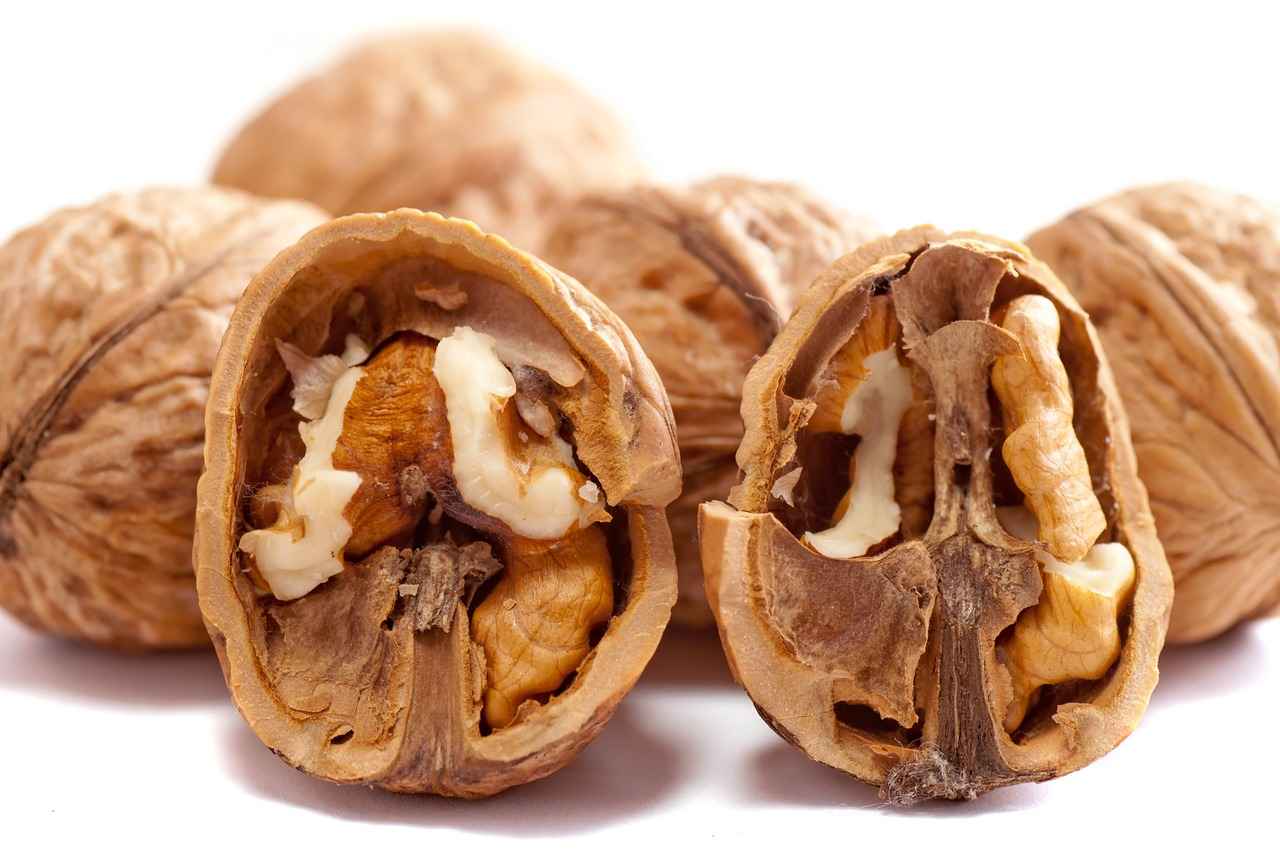
What Nutrients Are Found in Chia Seeds?
Chia seeds have gained immense popularity in recent years, often hailed as a superfood due to their impressive nutrient profile. These tiny seeds, derived from the Salvia hispanica plant, are not only versatile but also incredibly beneficial for overall health. In this section, we will explore the various essential nutrients found in chia seeds and how they contribute to a balanced diet.
Chia seeds are a powerhouse of nutrition, offering a variety of essential nutrients that support overall health. Here are some of the key components:
- Protein: Chia seeds contain about 4 grams of protein per ounce, making them a valuable plant-based protein source. This is particularly beneficial for vegetarians and vegans looking to meet their protein needs.
- Fiber: With approximately 11 grams of fiber per ounce, chia seeds are an excellent source of dietary fiber, which aids in digestion and helps maintain a healthy weight by promoting feelings of fullness.
- Calcium: Chia seeds are rich in calcium, providing about 18% of the recommended daily intake per ounce. This mineral is essential for maintaining strong bones and teeth.
- Magnesium: With around 30% of the daily recommended intake per ounce, magnesium plays a crucial role in numerous bodily functions, including muscle and nerve function, blood sugar control, and blood pressure regulation.
- Iron: Chia seeds also contain iron, which is vital for transporting oxygen in the blood and preventing anemia. An ounce of chia seeds offers approximately 12% of the daily iron requirement.
- Omega-3 Fatty Acids: These seeds are an excellent source of alpha-linolenic acid (ALA), a type of omega-3 fatty acid that is essential for heart health and reducing inflammation.
- Antioxidants: Chia seeds are packed with antioxidants, which help combat oxidative stress and protect the body from free radical damage.
The combination of these nutrients makes chia seeds a valuable addition to a balanced diet. The high fiber content not only aids in digestion but also helps regulate blood sugar levels, making it a great option for those managing diabetes. Additionally, the protein and healthy fats in chia seeds can help maintain energy levels throughout the day.
Incorporating chia seeds into your diet is simple and can be done in various ways. You can add them to smoothies, sprinkle them on salads, or use them in baking. Their mild flavor allows them to blend seamlessly into many dishes, enhancing both nutrition and texture.
Moreover, the gel-like consistency that chia seeds develop when soaked in liquid can be used to create delicious puddings or as a thickening agent in recipes. This versatility makes chia seeds not only nutritious but also enjoyable to consume.
In summary, chia seeds are a nutrient-dense food that offers a multitude of health benefits. Their rich profile of protein, fiber, calcium, magnesium, iron, omega-3 fatty acids, and antioxidants makes them an excellent choice for anyone looking to improve their diet and overall health.
High Fiber Content
Chia seeds have gained immense popularity in recent years, especially among health-conscious individuals. One of their standout features is their . With approximately 11 grams of fiber per ounce, these tiny seeds can significantly contribute to digestive health and overall well-being.
Fiber is an essential component of a balanced diet, playing a vital role in maintaining healthy digestion. It helps to regulate bowel movements, prevent constipation, and promote a healthy gut microbiome. The fiber found in chia seeds is predominantly soluble fiber, which forms a gel-like substance when mixed with water. This unique property not only aids in digestion but also contributes to a feeling of fullness.
The soluble fiber in chia seeds acts as a prebiotic, feeding the beneficial bacteria in your gut. A healthy gut microbiome is crucial for effective digestion and nutrient absorption. By incorporating chia seeds into your diet, you can support your digestive health and potentially reduce the risk of gastrointestinal issues.
One of the remarkable benefits of chia seeds is their ability to promote feelings of fullness. When chia seeds are soaked in liquid, they expand and form a gel-like consistency. This can help to curb appetite and reduce overall calorie intake, making chia seeds an excellent addition to weight management strategies.
To reap the benefits of chia seeds, consider adding them to various meals and snacks. Here are some practical ways to incorporate chia seeds into your diet:
- Chia Seed Pudding: Combine chia seeds with your choice of milk or plant-based alternatives, sweeten to taste, and let it sit overnight for a nutritious breakfast or snack.
- Smoothies: Add a tablespoon of chia seeds to your favorite smoothie for an extra boost of fiber and nutrients.
- Baked Goods: Incorporate chia seeds into muffins, breads, or pancakes for added texture and nutrition.
While chia seeds offer numerous health benefits, it’s important to consume them in moderation. Due to their high fiber content, excessive consumption may lead to digestive discomfort, such as bloating or gas, especially if you are not adequately hydrated. It’s advisable to gradually increase your intake of chia seeds to allow your digestive system to adjust.
Nutritionists and health experts often emphasize the importance of fiber in the diet, highlighting chia seeds as a convenient source. Many recommend incorporating chia seeds into meals for their health-promoting properties. Research supports the idea that a diet rich in fiber, including sources like chia seeds, can lead to improved digestive health, weight management, and overall wellness.
In summary, the high fiber content of chia seeds makes them a valuable addition to a healthy diet. With their ability to improve digestion and promote feelings of fullness, chia seeds can support weight management and contribute to overall health. By incorporating chia seeds into your daily meals, you can enjoy their numerous benefits while enhancing your nutrient intake.
Omega-3 Fatty Acids
Omega-3 fatty acids are essential fats that our bodies cannot produce on their own, making it crucial to obtain them through our diet. Chia seeds, derived from the Salvia hispanica plant, offer one of the best plant-based sources of these vital nutrients. In this section, we will explore the significance of omega-3 fatty acids, their health benefits, and how chia seeds can play a pivotal role in your nutritional intake.
Omega-3 fatty acids are a type of polyunsaturated fat, which are beneficial for overall health. The three main types of omega-3s include:
- Ala (Alpha-linolenic acid) – Found in plant sources like chia seeds, flaxseeds, and walnuts.
- Epa (Eicosapentaenoic acid) – Primarily found in fish and algae.
- Dha (Docosahexaenoic acid) – Also found in fish and algae, essential for brain health.
Omega-3 fatty acids are crucial for various bodily functions, including:
- Heart Health: They help reduce triglycerides, lower blood pressure, and decrease the risk of heart disease.
- Brain Function: Omega-3s are vital for cognitive function and may help prevent mental decline as we age.
- Inflammation Reduction: They possess anti-inflammatory properties that can alleviate symptoms of arthritis and other inflammatory conditions.
Chia seeds are an exceptional source of Ala, the plant-based omega-3 fatty acid. Just one ounce of chia seeds contains approximately 5 grams of omega-3s, making it an easy and effective way to boost your intake.
Incorporating chia seeds into your diet can lead to numerous health benefits, including:
- Improved Heart Health: Regular consumption of omega-3s can help lower bad cholesterol levels and promote overall cardiovascular health.
- Enhanced Brain Function: The omega-3 content in chia seeds supports cognitive health and may improve mood and memory.
- Weight Management: Omega-3 fatty acids can help regulate metabolism and promote fat loss, making chia seeds a great addition to a weight-loss plan.
Adding chia seeds to your meals is simple and versatile. Here are some popular methods:
- Chia Seed Pudding: Mix chia seeds with milk or a plant-based alternative and let it sit overnight for a nutritious breakfast or snack.
- Smoothies: Blend chia seeds into your favorite smoothies for an added nutritional boost.
- Baking: Incorporate chia seeds into baked goods like muffins and breads for added texture and health benefits.
While chia seeds are generally safe for most individuals, it’s important to consume them in moderation. Excessive intake may lead to digestive issues due to their high fiber content. Always ensure to drink plenty of water when consuming chia seeds to aid digestion.
In summary, chia seeds are a powerhouse of omega-3 fatty acids, providing numerous health benefits that enhance heart health, brain function, and overall wellness. By incorporating chia seeds into your diet, you can easily increase your omega-3 intake and support a healthier lifestyle.

How Do Chia Seeds Benefit Heart Health?
Chia seeds have gained immense popularity in recent years, and for good reason. These tiny seeds pack a powerful punch when it comes to heart health. In this section, we will explore how chia seeds contribute to cardiovascular wellness, focusing on their ability to lower cholesterol levels and regulate blood pressure.
The omega-3 fatty acids and fiber found in chia seeds play a crucial role in maintaining a healthy heart. Research indicates that these nutrients can significantly improve cardiovascular health by addressing common risk factors associated with heart disease.
One of the primary benefits of chia seeds is their ability to help lower LDL cholesterol levels, often referred to as “bad” cholesterol. High levels of LDL cholesterol can lead to plaque buildup in the arteries, increasing the risk of heart attacks and strokes. Regular consumption of chia seeds has been shown to:
- Reduce LDL cholesterol: Studies suggest that the soluble fiber in chia seeds binds with cholesterol in the digestive system, preventing its absorption into the bloodstream.
- Increase HDL cholesterol: Chia seeds may also help raise levels of “good” HDL cholesterol, which is protective against heart disease.
Chia seeds are rich in potassium, a mineral known for its blood pressure-lowering effects. Potassium helps balance sodium levels in the body, which is essential for maintaining healthy blood pressure. By incorporating chia seeds into your diet, you may experience:
- Lower blood pressure: Regular intake of potassium-rich foods, such as chia seeds, can help reduce hypertension, decreasing the strain on the heart.
- Improved vascular function: The anti-inflammatory properties of omega-3 fatty acids in chia seeds contribute to better blood vessel function, further supporting healthy blood pressure levels.
Chronic inflammation is a significant risk factor for heart disease. The omega-3 fatty acids found in chia seeds are known for their anti-inflammatory properties. By reducing inflammation in the body, chia seeds can help protect against heart disease and other cardiovascular conditions. Some benefits include:
- Reduced inflammation markers: Regular consumption of chia seeds may lower levels of inflammatory markers in the blood, contributing to overall heart health.
- Enhanced endothelial function: Omega-3s can improve the function of the endothelium, the inner lining of blood vessels, which is crucial for maintaining healthy circulation.
To reap the heart health benefits of chia seeds, it’s easy to incorporate them into your daily meals. Here are some practical tips:
- Add chia seeds to smoothies for an extra nutrient boost.
- Use chia seeds in baking recipes, such as muffins or bread, to enhance fiber content.
- Mix chia seeds into yogurt or oatmeal for a satisfying breakfast option.
In conclusion, chia seeds offer a multitude of benefits for heart health, primarily through their ability to lower cholesterol levels and regulate blood pressure. Incorporating these nutrient-dense seeds into your diet can be a simple yet effective way to support your cardiovascular wellness.
Cholesterol Management
is a critical aspect of maintaining heart health, and chia seeds have emerged as a powerful ally in this regard. These tiny seeds are not only packed with nutrients but also play a significant role in lowering LDL cholesterol, often referred to as “bad” cholesterol. Understanding how chia seeds contribute to cholesterol management can empower individuals to make healthier dietary choices.
Regular consumption of chia seeds has been linked to a decrease in LDL cholesterol levels. This is particularly important because high levels of LDL cholesterol can lead to plaque buildup in the arteries, increasing the risk of heart disease and stroke. Chia seeds are rich in omega-3 fatty acids, which are known to help reduce inflammation and improve overall heart health.
In addition to their omega-3 content, chia seeds are a great source of dietary fiber. With approximately 11 grams of fiber per ounce, they promote a healthy digestive system and can assist in lowering cholesterol levels. Fiber binds to cholesterol in the digestive system, helping to remove it from the body. This process not only aids in cholesterol management but also contributes to a feeling of fullness, which can assist in weight management.
| Nutrient | Amount per 1 oz (28g) |
|---|---|
| Omega-3 Fatty Acids | 5 g |
| Dietary Fiber | 11 g |
| Protein | 4 g |
| Calcium | 18% of the Daily Value |
Incorporating chia seeds into your diet is easy and versatile. They can be added to smoothies, yogurt, or even baked goods, enhancing both nutrition and flavor. For those looking to manage cholesterol levels, a simple addition of chia seeds to breakfast can be a game-changer. Consider making chia seed pudding or adding them to your morning oatmeal for a nutritious boost.
It’s important to note that while chia seeds can be beneficial, they should be consumed as part of a balanced diet. A diet high in fruits, vegetables, whole grains, and lean proteins, combined with regular physical activity, is essential for effective cholesterol management. Consulting with a healthcare provider or a registered dietitian can provide personalized recommendations based on individual health needs.
In summary, the regular incorporation of chia seeds into your diet can significantly contribute to . By lowering LDL cholesterol levels and providing essential nutrients, chia seeds are a valuable superfood for anyone looking to improve their heart health. As you explore ways to enhance your diet, consider the myriad benefits that chia seeds have to offer.
Blood Pressure Regulation
Chia seeds, often hailed as a nutritional powerhouse, offer a myriad of health benefits, particularly in the realm of cardiovascular health. One of the key components that contribute to these benefits is potassium. This essential mineral plays a crucial role in regulating blood pressure, making chia seeds a valuable addition to a heart-healthy diet.
Potassium is vital for maintaining proper cell function and fluid balance in the body. It helps relax blood vessel walls, which in turn can lead to a reduction in blood pressure. When potassium levels are adequate, it counteracts the effects of sodium, which is known to elevate blood pressure. As such, consuming foods rich in potassium, like chia seeds, can be an effective strategy for managing hypertension.
Chia seeds are not only rich in potassium but also packed with other heart-healthy nutrients. They contain a significant amount of omega-3 fatty acids, which are known for their anti-inflammatory properties and ability to lower cholesterol levels. This combination of nutrients makes chia seeds a formidable ally in promoting overall cardiovascular wellness.
In just one ounce (about two tablespoons) of chia seeds, you can find approximately 44 milligrams of potassium. While this may not seem like a large amount, it contributes to the daily recommended intake, which is around 4,700 milligrams for adults. Incorporating chia seeds into your diet can help you reach this goal, especially when combined with other potassium-rich foods like bananas, spinach, and sweet potatoes.
- Chia Seed Smoothies: Blend chia seeds into your morning smoothie for an added nutritional boost.
- Chia Pudding: Soak chia seeds in almond milk overnight to create a delicious pudding that’s rich in potassium.
- Baking: Add chia seeds to muffins or bread recipes for a healthy twist.
While chia seeds are generally safe for most individuals, it is important to consume them in moderation. Overconsumption can lead to digestive discomfort due to their high fiber content. Additionally, those with certain medical conditions or on specific medications should consult a healthcare provider before adding chia seeds to their diet, particularly if they are managing blood pressure.
Nutritionists frequently endorse chia seeds as part of a balanced diet, particularly for individuals looking to improve their heart health. Their unique combination of potassium, fiber, and omega-3 fatty acids makes them a smart choice for anyone aiming to regulate blood pressure and enhance overall wellness.
In summary, the potassium found in chia seeds plays a significant role in blood pressure regulation, contributing to cardiovascular wellness and reducing strain on the heart. By incorporating chia seeds into your diet, you can enjoy not only their health benefits but also their versatility in various recipes. Make chia seeds a part of your daily routine and take a proactive step toward better heart health.
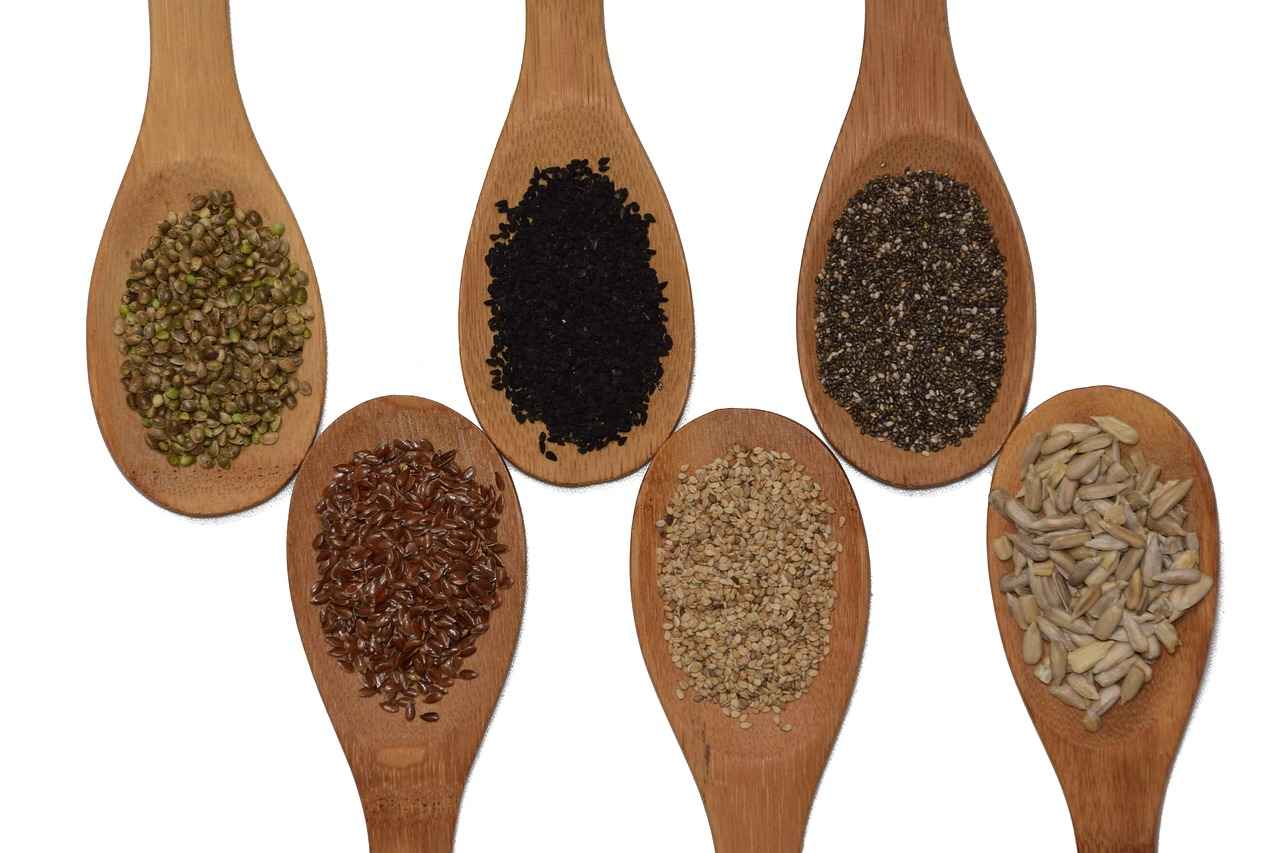
Can Chia Seeds Aid in Weight Loss?
Chia seeds, often hailed as a superfood, have gained popularity in the health and wellness community for their numerous benefits, particularly in the realm of weight loss. These tiny seeds pack a powerful punch when it comes to nutrition, and their unique properties can play a significant role in helping individuals manage their weight effectively.
How Do Chia Seeds Promote Satiety?
One of the primary reasons chia seeds are beneficial for weight loss is their high fiber content. Just one ounce (about 28 grams) of chia seeds contains approximately 11 grams of fiber, which is crucial for promoting feelings of fullness. When chia seeds are consumed, they absorb liquid and expand in the stomach, forming a gel-like consistency. This not only slows down digestion but also helps keep you feeling satisfied for longer periods, reducing the likelihood of overeating.
Are Chia Seeds a Low-Calorie Snack Option?
Another appealing aspect of chia seeds is their low calorie count compared to their nutrient density. With only about 137 calories per ounce, they provide a wealth of nutrition without adding excessive calories to your diet. This makes them an ideal snack option for those looking to lose weight while still obtaining essential nutrients.
How Can You Incorporate Chia Seeds into Your Diet?
- Chia Seed Pudding: Combine chia seeds with your choice of milk or plant-based alternatives to create a delicious pudding that can be enjoyed as a breakfast or snack.
- Smoothies: Add a tablespoon of chia seeds to your favorite smoothie for an extra boost of fiber and omega-3 fatty acids.
- Baked Goods: Incorporate chia seeds into muffins, bread, or pancakes for added texture and nutrition.
Do Chia Seeds Have Any Other Health Benefits?
In addition to aiding in weight loss, chia seeds are rich in omega-3 fatty acids, which are essential for heart health. They also contain antioxidants, calcium, and magnesium, making them a well-rounded addition to any diet. The combination of fiber and healthy fats can help stabilize blood sugar levels, further supporting weight management efforts.
Are There Any Risks to Consider?
While chia seeds are generally safe for most people, moderation is key. Consuming excessive amounts may lead to digestive discomfort, particularly for individuals not accustomed to a high-fiber diet. It’s important to stay adequately hydrated when consuming chia seeds to help mitigate any potential digestive issues.
What Do Experts Say About Chia Seeds and Weight Loss?
Nutritionists often endorse chia seeds as a valuable addition to a weight loss regimen. They emphasize the importance of incorporating these seeds into a balanced diet rather than relying solely on them for weight loss. Combining chia seeds with other nutrient-dense foods can enhance their effectiveness in promoting satiety and overall health.
In summary, chia seeds can be a powerful ally in your weight loss journey due to their high fiber content, low calorie count, and numerous health benefits. By incorporating them into your meals and snacks, you can enjoy their nutritional advantages while working towards your weight management goals.
Feeling Full Longer
Chia seeds have gained immense popularity in recent years, particularly among health-conscious individuals looking for effective ways to manage their weight. One of the most significant benefits of chia seeds is their ability to promote a feeling of fullness, which can be crucial for those trying to control their portion sizes. This article delves deeper into how the unique properties of chia seeds contribute to this sensation of satiety.
When chia seeds are soaked in liquid, they absorb water and expand, forming a gel-like consistency. This transformation is due to their high soluble fiber content, which can hold up to 10-12 times its weight in water. This gel-like texture not only makes chia seeds a versatile ingredient in various recipes but also plays a significant role in enhancing feelings of fullness.
Chia seeds contain approximately 11 grams of fiber per ounce, which contributes to their ability to keep you feeling satisfied. Fiber helps slow down the digestion process, allowing for a gradual release of energy. This slow digestion can prevent spikes in blood sugar levels, which often lead to cravings and overeating. By incorporating chia seeds into your meals, you can effectively manage your appetite and reduce the likelihood of snacking between meals.
- Chia Seed Pudding: Combine chia seeds with your choice of milk or plant-based alternative, add a sweetener if desired, and let it sit overnight. Enjoy it as a breakfast or snack option that keeps you full.
- Smoothies: Add a tablespoon of chia seeds to your smoothies for added nutrition and satiety. The seeds will thicken the smoothie and make it more filling.
- Baked Goods: Incorporate chia seeds into muffins, breads, or energy bars to boost fiber content and promote a feeling of fullness.
Several studies have examined the impact of chia seeds on satiety and weight management. Research indicates that individuals who consume chia seeds may experience reduced hunger levels and a lower overall caloric intake. This is attributed to the seeds’ ability to absorb water and create a gel, which takes up space in the stomach and signals to the brain that you are full.
While many foods are high in fiber, chia seeds stand out due to their unique ability to absorb liquid and expand. Other fiber sources, such as fruits and vegetables, provide bulk but may not offer the same level of satiety. The gel-like consistency of chia seeds can help individuals feel full longer compared to other high-fiber foods, making them an excellent option for weight management.
To maximize the benefits of chia seeds in promoting satiety, consider the following tips:
- Start with small amounts, such as one tablespoon, and gradually increase to avoid digestive discomfort.
- Soak chia seeds in liquid for at least 30 minutes before consuming to allow them to expand fully.
- Combine chia seeds with protein-rich foods, like yogurt or nut butter, to enhance fullness even further.
In conclusion, the unique properties of chia seeds, particularly their gel-like consistency when soaked, play a vital role in promoting a feeling of fullness. By incorporating chia seeds into your diet, you can effectively manage portion sizes and support your weight management goals.
Low-Calorie Snack Option
When it comes to healthy snacking, chia seeds stand out as an excellent choice for those mindful of their caloric intake. These tiny seeds, derived from the Salvia hispanica plant, are not only low in calories but also packed with essential nutrients, making them a perfect addition to any weight loss plan.
Chia seeds offer a unique combination of nutritional benefits that can help you maintain a balanced diet while pursuing your weight loss goals. With only about 60 calories per tablespoon, they provide a wealth of nutrients without the extra calories that often accompany traditional snacks.
- High Fiber Content: Chia seeds contain approximately 11 grams of fiber per ounce. This high fiber content promotes digestive health and helps you feel full longer, reducing the likelihood of overeating.
- Rich in Omega-3 Fatty Acids: These seeds are an excellent source of plant-based omega-3 fatty acids, which are essential for heart health and can help reduce inflammation.
- Protein Power: Chia seeds are a good source of protein, providing about 4 grams per ounce, which is crucial for muscle maintenance and overall health.
- Minerals Galore: They are also rich in calcium, magnesium, and iron, contributing to bone health and overall vitality.
The gel-like consistency of chia seeds when soaked in liquid can create a feeling of fullness, which is particularly beneficial for those trying to manage their appetite. This property allows individuals to enjoy a satisfying snack without consuming excessive calories.
Integrating chia seeds into your daily meals can be both easy and delicious. Here are some practical ideas:
- Chia Seed Pudding: Combine chia seeds with your choice of milk or yogurt and let them soak overnight for a tasty, nutritious pudding.
- Smoothie Booster: Add a tablespoon of chia seeds to your favorite smoothie for an extra nutrient kick.
- Baked Goods: Incorporate chia seeds into muffins or bread for added texture and nutrition.
While chia seeds are generally safe for most individuals, moderation is key. Consuming excessive amounts can lead to digestive discomfort due to their high fiber content. It’s advisable to start with a small portion and gradually increase your intake.
Nutritionists frequently recommend chia seeds as a versatile superfood that can enhance overall health. Their rich nutrient profile and ability to support weight management make them a valuable addition to a healthy diet.
In summary, chia seeds serve as a that not only satisfies hunger but also provides a wealth of nutrients essential for maintaining good health. By incorporating them into your diet, you can enjoy a delicious snack that supports your weight loss journey without compromising on nutrition.

How to Incorporate Chia Seeds into Your Diet?
Chia seeds, often hailed as a superfood, are not only packed with nutrients but also incredibly versatile. Incorporating them into your daily meals can enhance your overall nutrition and add a delightful texture to various dishes. Here, we explore practical and innovative ways to include chia seeds in your diet.
Chia seeds can be seamlessly integrated into your meals, providing both health benefits and culinary flair. Here are some popular methods:
- Chia Seed Pudding: One of the most popular ways to enjoy chia seeds is by making chia seed pudding. Combine 3 tablespoons of chia seeds with 1 cup of milk (dairy or plant-based) and let it sit for a few hours or overnight. The seeds absorb the liquid, creating a thick, creamy texture. You can enhance the flavor by adding vanilla extract, honey, or fresh fruits.
- Adding to Smoothies: Boost the nutritional value of your smoothies by adding a tablespoon of chia seeds. They blend well and provide a satisfying thickness without altering the flavor. This method is especially beneficial for a quick breakfast or post-workout recovery.
- In Baking: Chia seeds can be incorporated into baked goods such as muffins, pancakes, or bread. Replace part of the flour with ground chia seeds or add whole seeds for a crunchy texture. This not only enhances the nutritional profile but also adds a unique flavor.
- As a Topping: Sprinkle chia seeds on top of yogurt, oatmeal, or salads. This simple addition can elevate your meals, providing a delightful crunch and an extra dose of nutrients.
- Chia Seed Gel: To create a chia gel, mix 1 part chia seeds with 3 parts water and let it sit for about 15 minutes. This gel can be used as a thickening agent in recipes or as an egg substitute in vegan baking.
Integrating chia seeds into your diet offers numerous benefits:
- Enhanced Nutritional Profile: Chia seeds are rich in omega-3 fatty acids, fiber, protein, and essential minerals like calcium and magnesium. This makes them a valuable addition to any meal.
- Improved Digestive Health: The high fiber content in chia seeds aids digestion and promotes regularity. They can help maintain a healthy gut and prevent constipation.
- Weight Management: Chia seeds can help you feel full longer due to their ability to absorb liquid and expand in your stomach. This can be beneficial for those looking to manage their weight.
- Heart Health: The omega-3 fatty acids in chia seeds contribute to cardiovascular health by lowering cholesterol and reducing inflammation.
Absolutely! Chia seeds are not just for sweet dishes. They can be used in various savory recipes:
- Soups and Stews: Add chia seeds to soups and stews as a thickening agent. They blend well and enhance the texture without affecting the flavor.
- Salad Dressings: Incorporate chia seeds into homemade salad dressings for added nutrition. They can help emulsify the dressing and provide a pleasant crunch.
In conclusion, the versatility of chia seeds makes them an excellent addition to a wide range of dishes. Their health benefits, combined with their ability to enhance texture and flavor, make them a must-try for anyone looking to improve their diet. Start experimenting with chia seeds today and discover the many ways they can enrich your meals!
Chia Seed Pudding Recipes
Chia seed pudding is not only a nutritious dessert but also a versatile dish that can be tailored to suit various tastes and dietary preferences. This delightful pudding is made by soaking chia seeds in a liquid, which can be anything from traditional dairy milk to plant-based alternatives such as almond, coconut, or oat milk. The result is a creamy, gel-like consistency that makes for a satisfying treat.
Chia seed pudding stands out as a popular choice for health-conscious individuals due to its rich nutritional profile. Chia seeds are loaded with omega-3 fatty acids, fiber, protein, and essential minerals, making them a powerhouse of nutrition. This pudding is not just a dessert; it can serve as a breakfast option or a snack, providing sustained energy throughout the day.
Creating chia seed pudding is incredibly simple. Here’s a basic recipe to get you started:
- Ingredients:
- 1/4 cup chia seeds
- 1 cup milk (dairy or plant-based)
- 1-2 tablespoons sweetener (honey, maple syrup, or agave)
- 1/2 teaspoon vanilla extract (optional)
- Instructions:
- In a mixing bowl, combine chia seeds, milk, sweetener, and vanilla extract.
- Stir well to ensure the chia seeds are evenly distributed.
- Let the mixture sit for about 5-10 minutes, then stir again to prevent clumping.
- Cover and refrigerate for at least 2 hours or overnight for best results.
- Serve chilled, topped with your favorite fruits, nuts, or granola.
Once you master the basic recipe, feel free to experiment with different flavors and ingredients:
- Chocolate Chia Seed Pudding: Add 2 tablespoons of cocoa powder and a pinch of salt to the basic recipe for a rich chocolate flavor.
- Fruit-Infused Pudding: Blend in pureed fruits like mango, banana, or berries before refrigerating for a fruity twist.
- Spiced Chia Pudding: Incorporate spices such as cinnamon or nutmeg for a warm, comforting flavor profile.
In addition to being delicious, chia seed pudding offers a range of health benefits:
- Rich in Nutrients: Chia seeds provide a significant amount of fiber, which aids in digestion and promotes a feeling of fullness.
- Heart-Healthy: The omega-3 fatty acids in chia seeds contribute to heart health by reducing inflammation and lowering cholesterol levels.
- Bone Support: Chia seeds are high in calcium, magnesium, and phosphorus, essential for maintaining strong bones.
Incorporating chia seed pudding into your diet can be a delightful way to enhance your nutrition. With so many variations and health benefits, it’s clear why this dish has become a staple for many health enthusiasts. Whether enjoyed as a breakfast, snack, or dessert, chia seed pudding is a delicious and nutritious addition to any meal plan.
Adding Chia Seeds to Smoothies
Chia seeds have gained immense popularity in the health and wellness community, and one of the simplest ways to incorporate them into your diet is by adding them to smoothies. This not only enhances the flavor and texture of your drink but also significantly boosts its nutritional value.
Chia seeds are a powerhouse of nutrients, making them an excellent addition to any smoothie. They are rich in omega-3 fatty acids, fiber, protein, and various essential minerals. When blended into a smoothie, they provide a creamy texture and help to thicken the mixture, giving it a satisfying consistency.
Incorporating chia seeds into your smoothies is a quick and easy way to consume essential nutrients, especially for those with busy lifestyles. With just a tablespoon of chia seeds, you can add:
- 5 grams of protein
- 11 grams of fiber
- Omega-3 fatty acids
- Calcium, magnesium, and iron
This combination not only helps fulfill daily nutritional requirements but also supports overall health and wellness.
Preparing a chia seed smoothie is straightforward. Here’s a simple recipe to get you started:
Ingredients:- 1 cup of your favorite fruits (e.g., bananas, berries, or mango)- 1 cup of spinach or kale (optional for added greens)- 1 tablespoon of chia seeds- 1 cup of almond milk or any milk of your choice- A drizzle of honey or maple syrup for sweetness (optional)Instructions:1. In a blender, combine all ingredients.2. Blend until smooth and creamy.3. Pour into a glass and enjoy immediately!
Adding chia seeds to your smoothies not only enhances their flavor but also offers numerous health benefits:
- Improved Digestion: The high fiber content in chia seeds promotes healthy digestion and regularity.
- Heart Health: Omega-3 fatty acids support cardiovascular health by reducing inflammation and lowering cholesterol levels.
- Weight Management: The gel-like consistency of chia seeds when soaked in liquids helps you feel full longer, aiding in appetite control.
To maximize the benefits of chia seeds in your smoothies, consider the following tips:
- Soak the Seeds: Soaking chia seeds in water or your smoothie liquid for about 10-15 minutes before blending can enhance their texture and nutrient absorption.
- Experiment with Flavors: Chia seeds have a mild flavor, making them versatile. Try different combinations of fruits and greens to find your perfect blend.
- Watch the Quantity: While chia seeds are nutritious, moderation is key. A tablespoon per smoothie is usually sufficient to reap the benefits without overwhelming your digestive system.
In conclusion, adding chia seeds to smoothies is an effortless and effective way to enhance your diet. With their numerous health benefits and versatility, they can transform a simple drink into a nutritional powerhouse. So, whether you’re rushing out the door or enjoying a leisurely breakfast, consider incorporating chia seeds into your smoothies for a delicious and healthful boost.
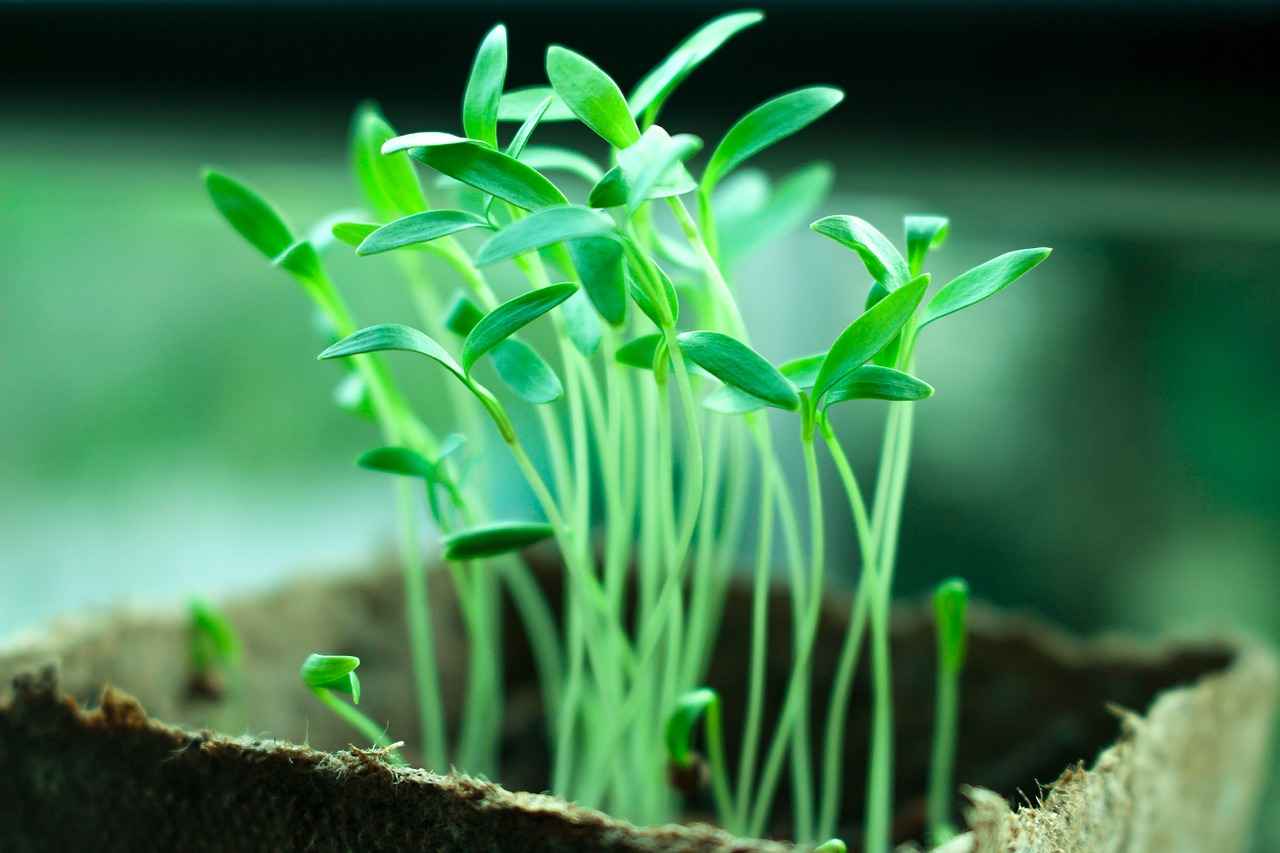
Are There Any Risks Associated with Chia Seeds?
Chia seeds have gained immense popularity due to their numerous health benefits and versatility in various dishes. However, like any food, they come with certain risks that consumers should be aware of. Understanding these potential risks can help individuals make informed choices about including chia seeds in their diet.
While chia seeds are generally regarded as safe for most individuals, excessive consumption can lead to various health issues. It is crucial to be aware of these risks to enjoy the benefits without experiencing negative side effects.
Chia seeds are incredibly high in fiber, with about 11 grams of fiber per ounce. This fiber content is beneficial for digestion, but consuming too many chia seeds at once can lead to bloating, gas, and other digestive discomforts. When chia seeds are mixed with liquid, they absorb a significant amount of water and expand, forming a gel-like substance. If not adequately hydrated, the seeds can create a feeling of fullness that may be uncomfortable.
Although rare, some individuals may have an allergic reaction to chia seeds. Symptoms can include skin rashes, itching, or gastrointestinal issues. If you are trying chia seeds for the first time, it’s advisable to start with a small amount and monitor your body’s response. If any adverse effects occur, discontinue use and consult a healthcare professional.
Chia seeds may interact with certain medications, particularly those that affect blood pressure or blood sugar levels. Due to their high omega-3 fatty acid content, chia seeds can have a blood-thinning effect, which may enhance the effects of anticoagulant medications. If you are on such medications, it’s essential to consult your doctor before adding chia seeds to your diet.
While chia seeds are nutrient-dense, relying solely on them for certain nutrients can lead to imbalances. For example, overconsumption of chia seeds may lead to excessive fiber intake, which can interfere with the absorption of essential minerals like calcium and magnesium. A balanced diet that includes a variety of foods is crucial for overall health.
To enjoy the benefits of chia seeds while minimizing risks, consider the following tips:
- Start Small: Begin with a small serving, such as one tablespoon, and gradually increase as your body adjusts.
- Stay Hydrated: Always consume chia seeds with plenty of water or liquid to aid digestion and prevent discomfort.
- Consult a Healthcare Professional: If you have any underlying health conditions or are taking medications, consult with a healthcare provider before adding chia seeds to your diet.
Chia seeds can be a nutritious addition to your diet, but it is essential to be aware of the potential risks associated with their consumption. By understanding these risks and following safety guidelines, you can enjoy the health benefits of chia seeds while minimizing any adverse effects.
Digestive Concerns
Chia seeds have gained immense popularity as a health food, thanks to their impressive nutritional profile. However, it is essential to understand that, like any food, they can have adverse effects when consumed in excess. One common concern is related to their high fiber content. While fiber is crucial for digestive health, consuming too many chia seeds at once can lead to discomfort.
Chia seeds are packed with approximately 11 grams of fiber per ounce, which is beneficial for digestion and overall health. However, this high fiber content can also be a double-edged sword. When consumed in large quantities without adequate hydration, chia seeds can absorb water and expand in the digestive tract, leading to bloating, gas, and discomfort.
To enjoy the benefits of chia seeds while minimizing the risk of digestive issues, moderation is key. Experts recommend starting with 1 to 2 tablespoons per day, gradually increasing the amount as your body adjusts to the increased fiber intake. It is also crucial to drink plenty of water when consuming chia seeds, as this helps facilitate digestion and prevents the seeds from swelling excessively in the gut.
Being aware of the signs of overconsumption can help you manage your chia seed intake effectively. Common symptoms of consuming too many chia seeds include:
- Bloating
- Gas
- Abdominal pain
- Constipation
To enjoy chia seeds without discomfort, consider the following tips:
- Hydrate: Always drink plenty of water when consuming chia seeds.
- Soak Before Eating: Soaking chia seeds in water or milk for at least 30 minutes can help reduce their potential for causing digestive issues.
- Mix with Other Foods: Incorporating chia seeds into smoothies, yogurts, or oatmeal can help balance their fiber content with other nutrients.
While digestive concerns are the most common issue associated with chia seeds, it’s also important to note that some individuals may experience allergic reactions. Though rare, symptoms can include itching, hives, or difficulty breathing. If you are trying chia seeds for the first time, it’s wise to start with a small amount and monitor your body’s response.
If you have existing digestive issues or concerns about incorporating chia seeds into your diet, it is advisable to consult with a healthcare professional. They can provide personalized recommendations based on your individual health needs and dietary goals.
In summary, while chia seeds offer numerous health benefits, it is crucial to consume them responsibly. By understanding their potential digestive concerns and following best practices for consumption, you can enjoy the nutritional advantages of this superfood without discomfort.
Allergic Reactions
Chia seeds have gained immense popularity as a nutritional powerhouse, packed with essential nutrients and health benefits. However, like any food, they can pose risks for certain individuals. One of the lesser-known concerns is the potential for . Understanding this aspect is crucial for anyone considering adding chia seeds to their diet.
Although to chia seeds are relatively rare, they can manifest in various ways. Common symptoms may include:
- Skin Reactions: Hives, rashes, or eczema may occur after consumption.
- Gastrointestinal Issues: Symptoms such as nausea, vomiting, or diarrhea can arise.
- Respiratory Problems: Some individuals may experience difficulty breathing, wheezing, or nasal congestion.
If you notice any of these symptoms after consuming chia seeds, it is essential to seek medical advice promptly.
Individuals with existing allergies, particularly to other seeds or nuts, may be at a higher risk of developing an allergy to chia seeds. Additionally, those with a history of food allergies should approach chia seeds with caution. It is advisable to consult a healthcare professional before introducing any new food into your diet, especially if you have a known allergy history.
When trying chia seeds for the first time, consider the following tips to minimize the risk of allergic reactions:
- Start Small: Begin with a small amount, such as a teaspoon, to see how your body reacts.
- Monitor Symptoms: Keep track of any adverse reactions for at least 24 hours after consumption.
- Consult a Professional: If you have concerns, speak with a healthcare provider or allergist before trying chia seeds.
If you suspect that you are experiencing an allergic reaction to chia seeds, it is crucial to act quickly. Here are some steps to follow:
- Stop Consumption: Immediately discontinue eating chia seeds.
- Seek Medical Attention: If symptoms are severe, such as difficulty breathing or swelling of the throat, call emergency services or go to the nearest hospital.
- Inform Your Doctor: Make sure to inform your healthcare provider about the reaction for proper diagnosis and treatment.
While chia seeds offer numerous health benefits, it is essential to be aware of the potential for allergic reactions. By taking precautionary measures and monitoring your body’s response, you can safely enjoy the nutritional advantages of this superfood. Always consult with a healthcare professional if you have any concerns about allergies or dietary changes.
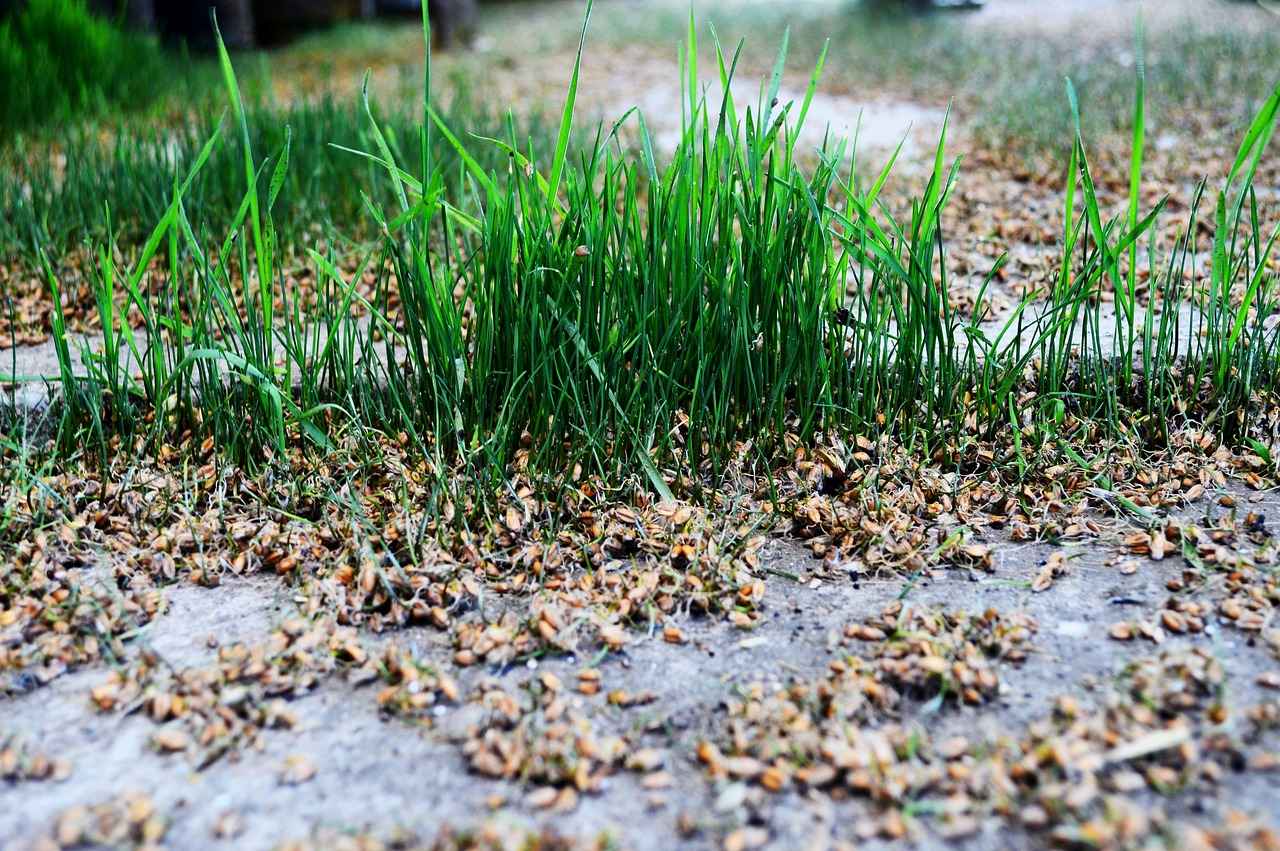
What Do Experts Say About Chia Seeds?
Nutritionists and health experts frequently highlight the significant health benefits of chia seeds, reinforcing their importance in a balanced diet. These tiny seeds, derived from the Salvia hispanica plant, have gained immense popularity due to their impressive nutritional profile and versatility in various dishes.
Experts emphasize that chia seeds are a powerhouse of essential nutrients. They are rich in omega-3 fatty acids, which are crucial for maintaining heart health and reducing inflammation. According to a study published in the Journal of Nutrition, the omega-3 content in chia seeds can help lower triglyceride levels and improve overall cardiovascular health. This makes them a valuable addition to the diets of individuals looking to enhance their heart health.
Another critical aspect that nutritionists point out is the high fiber content of chia seeds. With approximately 11 grams of fiber per ounce, these seeds can promote digestive health and help maintain a healthy weight. Experts suggest that incorporating chia seeds into meals can aid in achieving a feeling of fullness, which is beneficial for those trying to manage their appetite and reduce caloric intake.
When discussing the benefits of chia seeds, many experts also highlight their role in blood sugar regulation. The combination of fiber and protein in chia seeds can slow down the absorption of sugar in the bloodstream, helping to stabilize blood sugar levels. This is particularly important for individuals with diabetes or those at risk of developing the condition. Nutritionists recommend adding chia seeds to smoothies or yogurt for a nutritious boost that can aid in blood sugar management.
Furthermore, chia seeds are often praised for their antioxidant properties. These antioxidants help combat oxidative stress in the body, which can lead to chronic diseases. According to health experts, incorporating chia seeds into your diet can provide a natural source of antioxidants, supporting overall health and well-being.
In addition to their health benefits, chia seeds are incredibly versatile. Nutritionists encourage individuals to experiment with incorporating them into various recipes. From chia seed puddings to smoothies, the possibilities are endless. Experts suggest starting with a tablespoon of chia seeds added to your favorite meals to reap their benefits without overwhelming your diet.
However, experts also caution against excessive consumption of chia seeds. While they are generally safe, some individuals may experience digestive discomfort if consuming large amounts without adequate hydration. Nutritionists advise starting with small quantities and gradually increasing intake to allow your body to adjust.
In conclusion, health experts and nutritionists unanimously agree on the numerous benefits of chia seeds. Their rich nutrient profile, combined with their versatility and ease of incorporation into various meals, makes them a valuable addition to any diet. By understanding the health benefits and practical ways to include chia seeds in your meals, you can take significant steps towards enhancing your overall health and well-being.
Endorsements from Nutritionists
Nutritionists and health experts consistently highlight the importance of incorporating chia seeds into daily diets. These tiny seeds, derived from the Salvia hispanica plant, have gained immense popularity due to their exceptional nutrient profile and numerous health benefits. But what makes chia seeds so special, and why do experts advocate for their inclusion in our meals?
Chia seeds are a powerhouse of nutrients. They are rich in:
- Omega-3 Fatty Acids – essential for heart health
- Fiber – aids digestion and promotes satiety
- Protein – supports muscle repair and growth
- Calcium – vital for bone health
- Antioxidants – protect the body from oxidative stress
This diverse range of nutrients contributes to their classification as a superfood, making them a valuable addition to any diet.
Nutritionists suggest several practical ways to incorporate chia seeds into your diet:
- Chia Seed Pudding: Combine chia seeds with milk or a milk alternative, sweeten to taste, and let it sit overnight for a delicious breakfast.
- Smoothies: Add a tablespoon of chia seeds to your favorite smoothie for an extra nutrient boost.
- Baking: Mix chia seeds into muffins or bread for added texture and nutrition.
Numerous studies have examined the health benefits of chia seeds. Research indicates that regular consumption can lead to:
- Improved Heart Health: The omega-3 fatty acids found in chia seeds can help lower cholesterol and reduce inflammation.
- Weight Management: High fiber content promotes feelings of fullness, which can help control appetite and support weight loss efforts.
- Enhanced Digestive Health: The gel-like consistency of chia seeds when hydrated aids in digestion and promotes bowel regularity.
Many nutritionists advocate for the inclusion of chia seeds in daily diets due to their dense nutrient profile and health-promoting properties. They often recommend starting with small amounts, such as one tablespoon, and gradually increasing intake as your body adjusts. This approach helps mitigate any potential digestive discomfort associated with high fiber consumption.
In addition, nutritionists emphasize the importance of hydration when consuming chia seeds. Since they absorb liquid and expand in size, it’s crucial to drink plenty of water to avoid digestive issues.
While chia seeds are generally safe for most individuals, some may experience allergic reactions or digestive discomfort if consumed in excess. Nutritionists advise monitoring your body’s response and consulting with a healthcare provider if you have any concerns.
In summary, the endorsement of chia seeds by nutritionists is based on solid evidence of their health benefits and versatility in the kitchen. By incorporating these tiny seeds into your meals, you can enjoy a myriad of health advantages while enhancing the nutritional quality of your diet.
Research Studies on Chia Seeds
Chia seeds have gained considerable attention in the health and wellness community, with numerous research studies underscoring their potential benefits. These tiny seeds, rich in nutrients, are not only versatile in culinary applications but also play a significant role in promoting overall health. Below are some key findings from various studies that highlight the positive effects of chia seeds on health, particularly in relation to heart health, weight management, and digestive health.
One of the most compelling reasons to include chia seeds in your diet is their impact on cardiovascular health. Studies have shown that the high levels of omega-3 fatty acids found in chia seeds can help reduce inflammation and lower cholesterol levels. A particular study published in the American Journal of Clinical Nutrition indicated that regular consumption of chia seeds could lead to a significant decrease in LDL cholesterol, which is often referred to as “bad” cholesterol.
Weight management is another area where chia seeds shine. The seeds are known for their high fiber content, which contributes to a feeling of fullness and can help control appetite. Research conducted by the Journal of Nutrition found that participants who incorporated chia seeds into their diet experienced a reduction in overall calorie intake. This makes chia seeds an excellent choice for those looking to lose weight or maintain a healthy weight.
Chia seeds are also recognized for their benefits to digestive health. The soluble fiber in chia seeds absorbs water and expands in the stomach, which can aid in digestion and promote regular bowel movements. A study published in the Journal of Food Science highlighted that participants who consumed chia seeds experienced improved bowel function and reduced symptoms of constipation.
Incorporating chia seeds into your daily routine is easy and beneficial. Here are some practical ways to add them to your meals:
- Chia Seed Pudding: Combine chia seeds with milk or a dairy-free alternative, let it sit overnight, and enjoy a nutritious breakfast.
- Smoothies: Add a tablespoon of chia seeds to your favorite smoothie for an extra nutrient boost.
- Baking: Mix chia seeds into your baked goods, such as muffins or bread, for added texture and nutrition.
While chia seeds are generally safe for most individuals, it is essential to consume them in moderation. Overconsumption can lead to digestive issues, such as bloating or discomfort. A study in the International Journal of Food Sciences and Nutrition noted that excessive intake of chia seeds without adequate hydration could lead to gastrointestinal distress. It’s also advisable to monitor for any allergic reactions, although these are rare.
Nutritionists and health experts frequently endorse chia seeds for their numerous health benefits. Many recommend including them in a balanced diet due to their dense nutrient profile. Research continues to emerge, reinforcing the idea that chia seeds can be a powerful ally in achieving better health outcomes.
In summary, the extensive body of research surrounding chia seeds reveals their potential to enhance heart health, aid in weight management, and improve digestive health. By incorporating these tiny seeds into your diet, you can take a significant step towards achieving optimal wellness.
Frequently Asked Questions
- What are the main health benefits of chia seeds?
Chia seeds are packed with nutrients like omega-3 fatty acids, fiber, and antioxidants. These components help improve heart health, support digestion, and can aid in weight management by promoting feelings of fullness.
- How can I incorporate chia seeds into my diet?
You can easily add chia seeds to your meals! Try mixing them into smoothies, yogurt, or oatmeal. They also make a delicious chia seed pudding when soaked in milk or plant-based alternatives.
- Are there any risks associated with eating chia seeds?
While chia seeds are generally safe, consuming them in excess can lead to digestive discomfort due to their high fiber content. Additionally, some individuals may have allergies, so it’s wise to start with small amounts.
- How do chia seeds help with weight loss?
The high fiber content in chia seeds can help you feel full longer, which may reduce overall calorie intake. Their gel-like consistency when soaked also makes them a satisfying addition to meals.
- Can chia seeds improve heart health?
Yes! The omega-3 fatty acids and fiber in chia seeds can help lower cholesterol levels and regulate blood pressure, contributing to better cardiovascular health.











